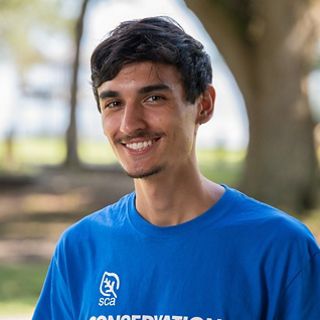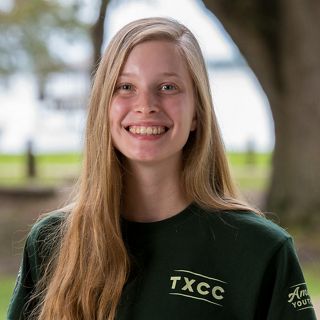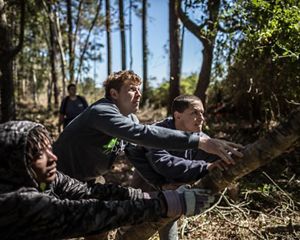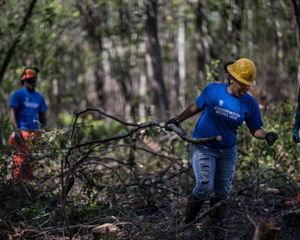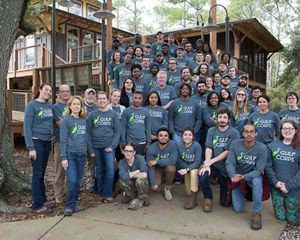Meet GulfCorps Alumni
These young people joined crews to work on restoration projects across the Gulf Coast. Find out how GulfCorps is shaping their careers.
The GulfCorps program aims to create jobs for hundreds of young adults living along the Gulf Coast. Teams of young adults work with GulfCorps to restore the natural features and habitats on critical conservation lands throughout the region. GulfCorps is a collaboration between of The Nature Conservancy and the National Oceanic and Atmospheric Administration (NOAA), supported by the RESTORE Council (Resources and Ecosystems Sustainability, Tourist Opportunities, and Revised Economies of the Gulf Coast States).
Simon Cruz Haggerty
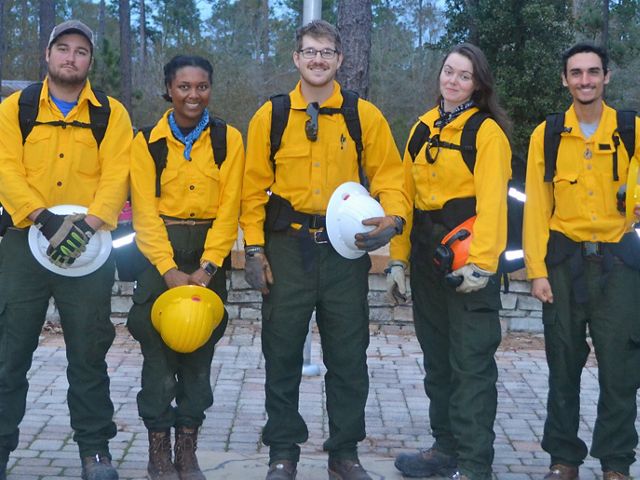
Simon Cruz Haggerty worked for GulfCorps from September 2018 to March 2019.
How did you get involved in GulfCorps?
One day at the beach my aunt was showing me job postings, and GulfCorps was posted. She said: “Look, this job is perfect for you, Simon. You get to kayak, chainsaw and work in nature. How cool!”
My interest piqued. I thought: “I could get used to that.” So, without hesitation, I applied. Sure enough, I made the cut.
What were your thoughts on working outside in nature when you first started?
GulfCorps was my first fully immersive experience working in nature. The Gulf Coast is an intense concoction of plants and animals. For me this high level of biodiversity was very exciting. Be it rain or sunshine, I could always count on some new plant or bird to learn about. If not for the mosquitos, I would stay outside forever.
What motivates you to work for the GulfCorps program?
My love for nature. When I would see disregard for the rainforests, and eradication of natural things and places, I would get very sad, angry and hopeless. Going through GulfCorps I realized that even though it seems like we are destroying our planet and its sustainability for future generations, there is still so much hope. Conservation is such a powerful thing.
It may take centuries to nurture all the oceans and land back to health, but as long as there are people and places dedicated to the true conservation and restoration of protected land, animals, mountains and the understanding of the ocean, then when the earth inevitably rebounds, we will have much left.
What were your goals going into GulfCorps and how did they change during your term?
Upon joining GulfCorps, my goals were simple: Be positive and gain outdoor experience. My goal of being positive is definitely an everyday goal for me and was very beneficial to my well-being, and on occasion the well-being of the team.
As for my goal of gaining outdoor experience, it was really an everyday thing. Every project, every lesson, was an experience, and whether I liked it or not I was outdoors. Luckily for me there was no place I would have rather been. All in all, my expectations were exceeded. I learned that what we do matters. More specifically what I do matters, and that is the same for everyone.
What was your favorite type of work with GulfCorps?
Being on plots of land which were seemingly untouched and pristine, yet on closer inspection were home to ample amounts of invasive species. So, getting the chance to lend a hand in the long and tedious process of regaining the natural beauty of a lake, wetland or forest and how it may have looked even 500 years ago, was by far my favorite work in nature.
What are you doing now that GulfCorps wrapped up for the season?
When GulfCorps wrapped up for the season, I landed a job with the Student Conservation Association on the California Roving Trails Leader team. I was cutting trails in Los Padres National Forest and doing rock work to prevent water erosion on the Mclaughlin Reserve. Following that project, I became ordained as a novice Buddhist monk at the Dhammakaya temple in Azusa, California. As a result, I will now be going to Bangkok this winter to train and deepen my meditations. I plan to return to the U.S. and continue working with the Student Conservation Association.
What impact has GulfCorps had in your life?
GulfCorps has truly been important in my life. First and foremost, it taught me passion for the work I do, and that our work is much better when we love what we are doing. It also gave me much awareness to the impact that mammals, invertebrates, amphibians, reptiles, birds and fish all have on nature. We as humans must conserve our planet’s ecological systems for our survival and for the survival of all life on earth.
Have your thoughts and perceptions of restoration and conservation changed since your GulfCorps experience?
I believe that the restoration and conservation work we do is very important and becomes more effective as our understanding increases. I believe that we should never think of conservation and restoration as a business. Conservation and restoration are our duty.
If you had some advice to give new GulfCorps members, what would it be?
Eye protection will save your life, trust me.
Anything else you want to add?
Shout out to the pygmy rattlesnake we saw in GulfShores!
Sarah Vande Brake
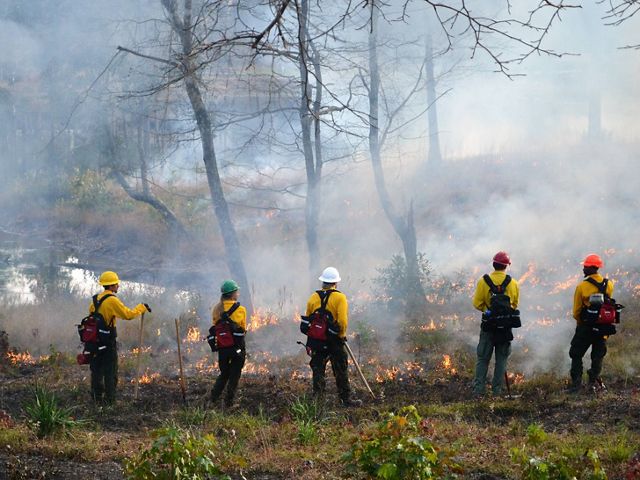
Sarah Vande Brake worked for the Aqua Crew out of the Houston office of the Texas Conservation Corps for six months. She is now a service technician for Cornell Cooperative Extension.
How did you get involved in GulfCorps?
I heard about the GulfCorps program when I was job searching online. After reading the job posting, I was very excited and immediately applied. I understood what the position would be like before I started because the staff spent the interview carefully explaining what it was like to be on a crew. I joined Aqua Crew in the Houston office as a crew member. When I first joined, I didn’t know the full impact that GulfCorps would have on my life. I was really pushed to learn new skills, work hard, and bond closely with my crew. Being part of the crew changed my life for the better, and I wouldn’t exchange the experience for anything.
What were your thoughts or perceptions of working outside in nature when you first started?
I had positive perceptions of working outside, although I had never really done it before. I have always loved the outdoors, and I especially love participating in habitat restoration since I want to positively impact local ecosystems.
What kept you motivated to work for the GulfCorps program?
I was highly motivated to work in the GulfCorps program. Every day, I was excited to go into work and get things done with my incredible crew! Since we rotated work between three project sites, I was able to see our progress throughout the season. We had a visible impact on these sites, which was very rewarding. The encouragement from our project partners, particularly those at Armand Bayou Nature Center, was also a motivator for me. Our project partners are highly invested in the ecosystems we worked to repair, and their appreciation meant the world to me.
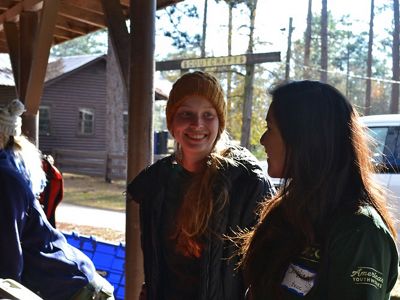
Can you share any interesting stories about the personalities on your crew and how you've grown during your term of service?
There’s so much I could say! My crew was packed with personality. Our leaders, Dex and Laura, were amazing in such different ways. Dex, who loves to kayak and fish, taught me all kinds of outdoor skills. I admired his sensitivity toward crew members, and his gentle, kind leadership is something I hope to emulate. Laura, a true bug lover, inspired me daily with her capability as a leader. Laura led by example and is highly resourceful. Leilani was the heart and soul of our crew. Her determination and humor kept us going through the toughest days (not to mention her chainsaw skills are top-notch). Kat made me laugh every single day, and I am constantly inspired by her sense of adventure and dependability. Christina’s conservation experience was invaluable to our crew. Her enthusiasm for our project work made me want to work harder, and without fail she could bring me out of my shell. Without a question, Tara had the most dramatic personal and professional transformation during the season. GulfCorps was her first experience with conservation work, but she was always the first to volunteer to learn a new skill. By the end of the season, she had secured a job on a fire crew! And finally, Patrick and Randy showed me the value of quiet observation and patience. I couldn’t have asked for a better crew.
What were your goals going into GulfCorps and how did they change during your term?
My main goal going into GulfCorps was to develop new skills to prepare myself for a career in environmental work. I feel that I was able to accomplish that goal and more. As a direct result of the skills and confidence I built with GulfCorps, I was able to get a job as a technician with one of the best agricultural research institutions in Western New York, Cornell Cooperative Extension. While my initial goal to gain professional skills and certifications remained intact all season, I surprised myself in developing personal goals, too. My experience on the crew made me want to be a leader although I had always considered myself a follower. I certainly became more confident as a result of being surrounded by people who believed in me. Going forward, I want to challenge myself and get out of my comfort zone on a regular basis.
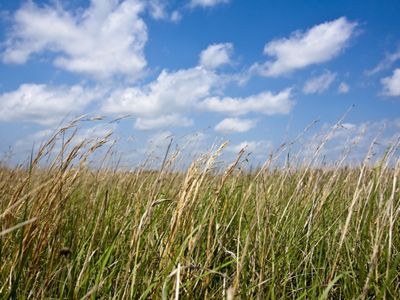
What was your favorite type of outdoors work with GulfCorps?
I moved to the Houston area only a short time before the program began, so I wasn’t familiar with the flora and fauna of the area. I loved our visits to local intact prairie ecosystems, particularly Nash Prairie. Our project partners often talked about how prairies are easily overlooked, because their beauty isn’t apparent from a distance. We had a lot of trouble finding Nash Prairie: from the road it just looked like another field. After we started to explore on foot using a mowed pathway, however, we discovered astonishing biodiversity. Learning about prairie and bayou ecology was fascinating and very new to me. My all-time favorite nature activity at our sites was mushroom foraging! There were many rainy winter days, which caused species of all kinds to pop up. We found everything from stinkhorns to fly agarics to indigo milkycaps. Our crew shared an enthusiasm for learning about mushrooms, and we always kept an eye out on our treks to and from project sites.
What are you doing now that GulfCorps has wrapped up for the season?
Right after the program ended, I moved back to my hometown of Rochester, New York. I am currently working as a greenhouse assistant where I am learning more about plants, and in about a week I will start my new job with Cornell Cooperative Extension. The Cornell Vegetable Program uses peer reviewed research to design field trials. This is called “implementation phase” research, and it shapes agricultural practices by bridging the gap between academia and what actually happens in the field. My role as a technician will be to collect and analyze data from sites, helping to create reports that will give data-based recommendations to farmers. The project monitoring work I did for GulfCorps helped me realize how rewarding field research can be, and I can’t wait to continue building my skills!
What impact has GulfCorps had in your life?
GulfCorps certainly impacted my technical skill set. Before joining the program, I had never touched a chainsaw or worked outdoors every day. The trainings GulfCorps provided in chainsaw operation and wildland firefighting are incredible resume-building material, and I learned so much from our instructors. It’s hard for me to fully express the impact that GulfCorps had on my life. I graduated from college a year early, and while I value my education deeply, I’m grateful that I made the decision to wrap up my formal education early and be part of GulfCorps’ field-based learning. I had a once-in-a-lifetime experience with my crew, and I wouldn’t have wanted to spend those six months doing anything else.
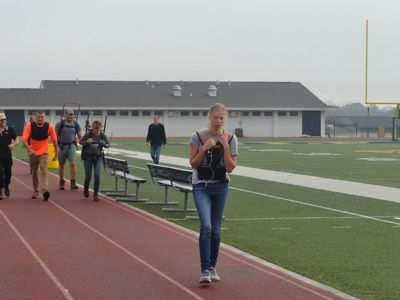
Have your thoughts and perceptions of restoration and conservation changed since your GulfCorps experience?
I have been committed to conservation for years, but it is definitely different once you actually get out in the field. I started to understand some of the practical limitations inherent in the work. A specific example is herbicide use. Going into the program, I was suspicious of herbicides. While I still don’t think that herbicide should be the first line of defense against invasive species, I now see how impractical physical removal can be in certain cases. (When you are the one doing the work, you quickly realize that it’s impossible to clear very large volumes of invasives with physical removal alone!) There are times when invasive species change a habitat faster than native species can adapt, and threaten to create huge monocultures, like the tallow forest that once covered Armand Bayou Nature Center. Sometimes, an ecosystem is so affected that it loses its ability to function properly if herbicides aren’t used to control invasive species.
What advice to you have for new GulfCorps members?
Never lose perspective. There may be moments when you start to take GulfCorps for granted—even the best work environments aren’t perfect every day. There will be times when the work is hard, or an interpersonal conflict arises, or a project gets stalled. It can be frustrating. You might start to feel like the work you’re doing isn’t making a difference. As someone who completed the program a few months ago, I reflect on my experience with GulfCorps daily. I miss my crew so much—especially because I now live across the country! I was lucky to have a workplace where I felt a total sense of belonging, and I won’t soon forget it. I believe that the work my crew did at our three sites will have a lasting impact, and I hope future crews will maintain and improve upon what we accomplished.
Anything else you want to add?
Join a crew! I can’t recommend Texas Conservation Corps and the GulfCorps program highly enough. The GulfCorps program is expanding and improving every season, and it really enables people to do valuable habitat restoration work while gaining skills themselves.
Courtney Gullo

Courtney Gullo served as Crew Leader of the Louisiana Conservation Corps (LaCC) from August 2018 through March 2019. She is now working as a Prescribed Fire Intern at The Nature Conservancy's North Shore Field Office near Abita Springs, Louisiana. This internship is through a program of the Student Conservation Association.
How did you get involved in GulfCorps? What were your duties as crew leader?
After finishing a term of service with the Maine Conservation Corps, I loved the work so much that I came back home and looked for similar conservation opportunities here in Louisiana. I saw a job posting for LaCC on The Corps Network's Twitter account and immediately applied.
After some experience in this field I had a pretty good idea of what to expect. But prior to starting this position, our Program Coordinator helped me understand that my position title was Crew Leader and my topline duties were mapping out day to day schedules for the crew to follow and working with our Project Partners to map out the project scopes.
I also organized food plans, managed the tool inventory and maintenance, and used the GPS to track our progress. As Crew Leader, I also had to ensure that my crew members had access to appropriate safety gear and that we always followed the necessary safety protocols for whatever we were doing that day.
Tell us about some of the people that made up your crew.
My crew had a wide array of characters, as all crews do. Everyone came from extremely different backgrounds but then we all came together for the same experience. An aspiring rapper; a 19 year-old New Englander just out of high school; mixed with a seasoned conservation corps guy; and two people who had no experience but wanted to work outside. Starting out it appeared we would not mix. But, when people come together with a common goal, it didn't matter what anyone's background was.

What was your favorite type of work you did with GulfCorps?
I really liked the construction-type work that we did a lot. Yeah, I know, I know, "coastal restoration" seems different than construction work, but we rebuilt hundreds of feet of boardwalks and public access areas where people can connect to nature without creating renegade trails, or bushwacking through a sensitive area. The wetlands and marshes of southwestern Louisiana are beautiful. I enjoyed the work a lot because I enhanced my knowledge on using power tools and was able to create a better space for the public to be able to utilize the land and experience what our refuges had to offer.
What are you doing now that GulfCorps wrapped up for the season?
I had the amazing opportunity though GulfCorps to become a trained Wildland Firefighter Type II (crewmember). This certification gives me the qualifications to apply controlled fires with a team of other certified firefighters, or other "Red Card" holders. It didn't even occur to me that that was something I'd be interested in, but after completing the trainings I realized that fire was the path for me. Once GulfCorps wrapped up, I heard of this new Fire Internship with SCA as an intern with The Nature Conservancy in Louisiana and thought it was perfect because I wanted to stay close to home and enhance my fire knowledge. This internship lasts 5 months and once it finishes this Summer I'm hoping to find a full-time job in wildland fire and begin my career.

What impact did GulfCorps have in your life?
GulfCorps has impacted my life more than I had ever imagined. I started GulfCorps just trying to get back into the conservation field. What I didn't expect is that this opportunity opened many new paths I didn't know existed. GulfCorps put me into a situation where, after learning and training about fire, I could actually go into a conservation and fire career. I could never be more grateful than I am for what GulfCorps has done for my future.
What's your advice for new GulfCorps members?
My advice to new GulfCorps members would be to embrace every single opportunity that is given to you. Even if it seems insurmountable, embrace it and put the effort in, you'll get there. Times will not always be ideal, sometimes you may think "What am I doing here?" But get past it. Never quit a job on a bad day. GulfCorps will be the greatest opportunity you've ever had, if you want it.

